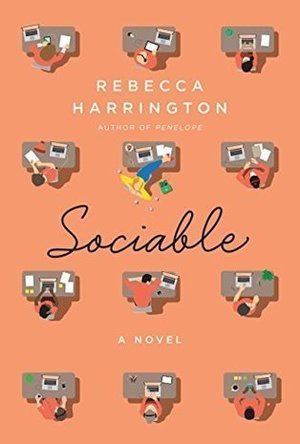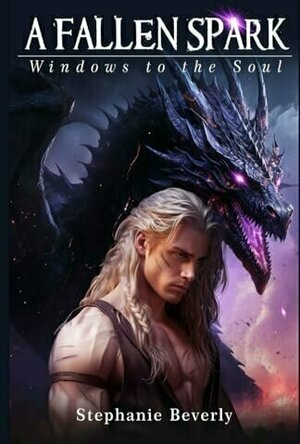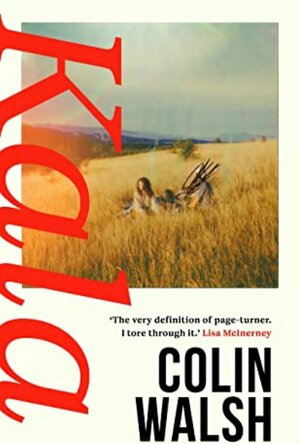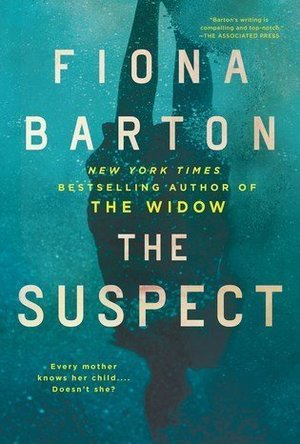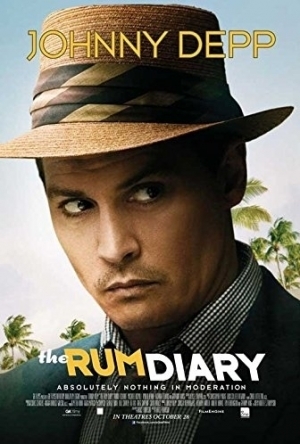
Bob Honey Who Just Do Stuff: A Novel
Book
“An almost literally up-to-the-minute fever dream of a novel.” —Bill Maher From legendary...
satire
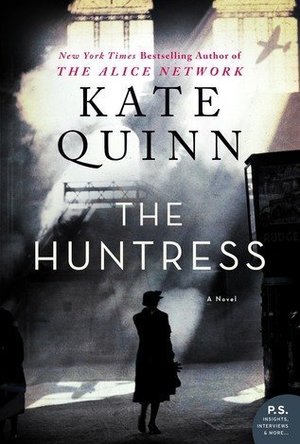
The Huntress
Book
From the author of the New York Times and USA Today bestselling novel, THE ALICE NETWORK, comes...
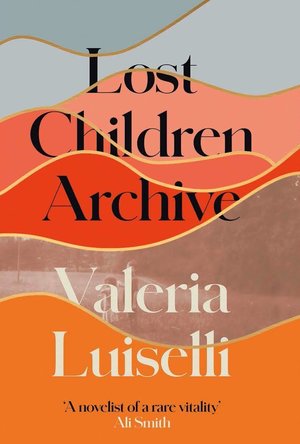
Lost Children Archive
Book
From the two-time NBCC Finalist, a fiercely imaginative novel about a family's summer road trip...

Rocked Hard
Book
Can the touch of a rock god last forever? Legendary alt rock singer, Aubrey King, is making a...
M_M Contemporary Romance
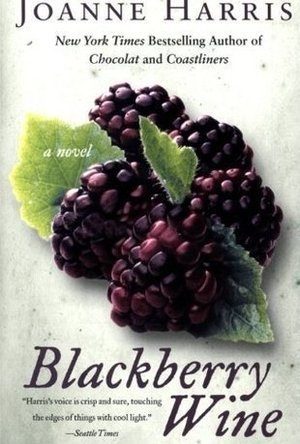
Blackberry Wine
Book
Like her well-received 1999 novel, Chocolat, Harris's latest outing unfolds around the arrival of an...
France
Merissa (13765 KP) rated A Fallen Spark (Windows to the Soul #1) in Books
Nov 27, 2023
This is a long book, told from different perspectives and at different times. As such, it can be a little confusing to stay with the story as it jumps timelines and people. I would say this has romantic elements, but it certainly isn't a romance. Also, if you are sensitive to subjects, then I absolutely recommend you read the TWs as there are some horrible moments on page.
Adler is the prophesied dragon child, here to save the world. Unfortunately, choices he wasn't even aware of were taken away from him, and he became the villain of the story. But don't worry, there are plenty more in here, and a lot worse than Adler.
Mark is his childhood best friend, the one he loves, and the one he will die to protect. There is also Tabitha, Mark's sister. Skye, a journalist who lives with their brother, Darren, also has a role to play, as does Darren.
Laine is a wild card, kept apart from everyone, and forced to do experiments to keep her parents safe. I'm not sure if she is supposed to be a character you sympathise with or not, but I didn't. I found her to be quite spoilt and close-minded, unwilling to even try to see the bigger picture.
All in all, I found this book to be interesting, with a unique idea of things costing spells in a world where magic is fading, and the effects that would have.
** same worded review will appear elsewhere **
* A copy of this book was provided to me with no requirements for a review. I voluntarily read this book; the comments here are my honest opinion. *
Merissa
Archaeolibrarian - I Dig Good Books!
Nov 27, 2023
Three friends reunite after many years. Mush has stayed in Kinlough, Joe has become a famous singer, and Helen has been working as a journalist in Canada. As teenagers, they hung around in a group of six, until one of its most popular members (Kala) goes missing. It seems that her disappearance has had a huge effect on all of her friends since then. Helen comes home for a wedding and during this time, remains are found in a hold-all. And they’re Kala.
Mush helps his mother run a coffee shop and is, I think, the most likeable character. He wants to pick up friendships where they were left off after Joe and Helen had left. I can’t help but think that Helen uses this as a way to get him to help her look into the disappearance of Kala.
This isn’t just about Kala though. It’s a book that looks at all of these characters and their lives. They all have issues of one kind or another, whether these issues are caused by Kala’s disappearance, their family lives or something more - the town itself has a violent undercurrent.
It’s beautifully written: the snatches of scenes from childhood are idyllic, the interactions of the characters range from funny to sad to menacing. Do these characters really know one another, and who can they trust? There are a lot of lies to uncover!
I will be very keen to read whatever Colin Walsh writes next - he’s definitely one to watch!
Kristy H (1252 KP) rated The Suspect (Kate Waters #3) in Books
Apr 4, 2019 (Updated Apr 8, 2019)
For some reason, I must have forgotten that this was another Kate Waters book, so I was really excited when I started reading and realized that both she and DI Bob Sparkes were back in this one. I really liked Barton's previous two books featuring Kate and Bob, THE WIDOW and The Child, and this one was no exception. By this point, they are starting to feel like old friends.
The story is told via short chapters from various points of view: Kate, Bob, and Alex's mother, Lesley. We also get flashbacks to Alex in Bangkok. It's all very effective, as the result is very easy-to read. The story moves along steadily, and it kept me very interested and wondering what had happened to the girls. I also found the story a little frightening and, as many thrillers do, it made me quite frightened for my children to grow up and leave the house!
Kate was her usual self--I just always find myself drawn to her. She's determined and tough, yet vulnerable. I don't know much about the press, especially not in the U.S., but Barton's take on Kate always seems really authentic to me. This makes sense, considering Barton is a former U.K. journalist: it shows. I always enjoy how focused Kate is: ready to do nearly anything to get her story. What's great about this novel is that Barton throws in a compelling personal aspect for both Kate and Bob; for Kate, it really shakes up her take on reporting, which is truly her one constant in life. While it's not easy for her (or for me, really, since I have grown to care for her), I found it interesting to watch her grapple with this. Kate also has to look at the truth and how she might present it when it's more personal for her. It's a stark dilemma, and made the book more fascinating.
"Being a reporter is touchy-feely...We're not here to observe the news happening through a telescope--or Google. You've got to plunge yourself into this job so you can feel things, see things up close, understand them. You've got to get your hands dirty. Right up to the elbows."
At the core, though, there's a very intriguing plot here: what happened to Alex and Rosie? I found the book to be really interesting, and I was sucked up along with Kate and Bob, trying to piece together the various clues as to what had happened. There are several great twists and turns thrown in: a few I guessed at, several that really surprised me. The book does a great job at exploring how the media can put a person on trial, as well as the way we portray ourselves on social media versus what's really happening behind the scenes. All the various shades of truth being presented in different facets--all quite interesting.
Overall, this one was a winner for me. It featured some characters that are old favorites, a compelling mystery, and some intriguing personal elements for said characters. I certainly hope Bob and Kate make a return appearance in another Barton book.
I received a copy of this novel from the publisher and Netgalley in return for an unbiased review.
Gareth von Kallenbach (980 KP) rated The Rum Diary (2011) in Movies
Aug 7, 2019
The Rum Diary follows Paul Kemp (played by Johnny Depp), a failed novelist turn journalist, who finds himself at a critical turning point in his life. Having written two and a half novels that were never published, he was having trouble finding his voice, in that he needed to find a way to “write like him” as Paul put it himself. So he decides to do some freelance writing for a small publication located in San Juan, Puerto Rico in 1960.
The movie opens with Kemp waking up in a hotel, and you can immediately, and clearly, see that he partakes in certain pleasures of life. After reporting to work at San Juan Star, Kemp meets Sala (played by Michael Rispoli), the photographer for the Star who quickly becomes his cohort. The editor-in-chief of the San Juan Star, Lotterman (played by Richard Jenkins) indicates to Kemp that the publication is only a few months away from being closed down, and that there really isn’t much to look forward to. He assigns Kemp to do some fluff pieces and the horoscope section of the paper.
Kemp is not content with this as he is looking at this experience as a way to put his career back on track. Over the next few days, during his adventures with Sala, he comes across a few different story ideas that are immediately shot down by Lotterman, as they emphasize the things that are wrong with San Juan, and Lotterman feels that the focus should be on the good things (like bowling alleys).
During one of his nights of boozing, he meets Chenault (played by Amber Heard). She’s aloof, mysterious, and of course… Kemp falls immediately in love with her. She just happens to be the girlfriend of Sanderson (played by Aaron Eckhart). Sanderson immediately recognizes the talents that Kemp has and begins recruiting him for a real estate scam. The idea is to get a foothold and build a new hotel on a private island that is used for United States military testing, but will soon be relinquished from that purpose. Sanderson and a group of investors want Kemp to put a brilliant positive spin on the hotel investment so that the public opinion, and that of those in a position to block the development, is a positive one.
Things begin to unravel as Kemp and Sala’s shenanigans keep getting them into trouble, culminating in a heated night where Kemp, Sala, Chenault and Sanderson end up at a bar during the St. Thomas Carnival.
The Rum Diary was highly entertaining with a great supporting cast. Giovani Ribisi provides an excellent distraction from some of the more serious events of the movie as he appears every now and then as Moburg, another reporter for the San Juan Star. The movie played like a great alcohol-induced, drug-fueled adventures of a journalist in the 1960s. Definitely some quirky moments, and you will find yourself laughing at many of Kemp and Sala’s exploits.
My only gripe with the movie is how it ended. The build up to Kemp printing the story and putting it out there leaves you wanting more. While I don’t think the film will reach the same cult-status that Fear and Loathing in Las Vegas will, it is definitely entertaining (all the way until the end). It is a good nod to Thompson and fans of his books and movie adaptations are sure to enjoy.
